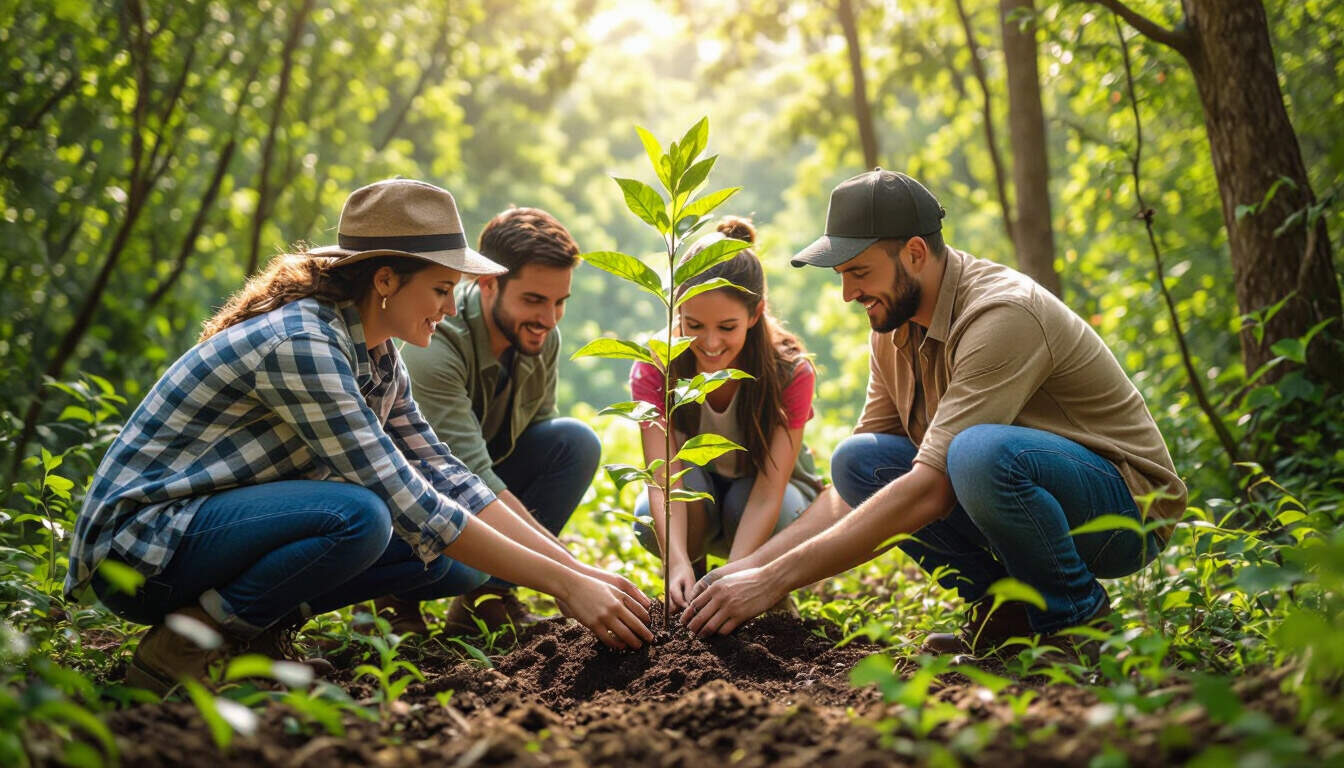Guerrilla PR Tactics for Eco-Tourism
 by Shanie Goodwin
by Shanie Goodwin
Discover innovative guerrilla PR strategies to promote eco-tourism businesses effectively. This article explores creative, low-cost methods for small enterprises to gain visibility and build sustainable brands through unconventional approaches.

Guerrilla PR offers a fresh way for eco-tourism businesses to stand out. It focuses on creative, low-budget efforts that surprise and engage audiences. For those in eco-tourism, these tactics can help spread messages about sustainable travel and conservation.
Why Guerrilla PR Works for Eco-Tourism
Small businesses in eco-tourism often face challenges with limited funds. Guerrilla PR steps in as a clever alternative to traditional advertising. It uses unexpected actions to capture attention and create buzz. In eco-tourism, this means tying promotions to environmental causes, making them more authentic and appealing.
One effective approach is staging pop-up events. Imagine setting up a temporary eco-friendly exhibit in a busy urban park. This draws passersby and generates word-of-mouth interest. Such events can highlight eco-tourism experiences, like guided nature walks or wildlife conservation trips.
Building Community Ties Through Creative Actions
Connecting with local communities is key in eco-tourism. Guerrilla PR tactics can foster these links without heavy spending. For instance, organizing volunteer clean-up days at popular tourist spots creates goodwill and media coverage. Participants share their experiences online, amplifying reach organically.
A practical example involves partnering with local artists to create street murals that promote eco-tourism destinations. These artworks tell stories of sustainable practices and attract visitors. By involving the community, businesses build loyalty and gain free publicity through social shares.
Leveraging Social Media for Maximum Impact
Social platforms provide fertile ground for guerrilla PR in eco-tourism. Instead of paid ads, focus on user-generated content. Encourage tourists to post photos of their eco-adventures using a specific hashtag. This turns customers into advocates, spreading your brand message far and wide.
For example, a eco-tourism company might run a challenge where participants document their low-impact travels. The best entries win small prizes, like guided tours. This not only boosts engagement but also positions the business as a leader in sustainable practices.
Innovative Storytelling Techniques
Storytelling is at the heart of effective PR. In eco-tourism, sharing compelling narratives can inspire action. Guerrilla tactics might include flash mobs in public spaces that demonstrate the beauty of nature conservation. Performers could enact scenes from eco-tours, drawing crowds and sparking conversations.
Another idea is distributing eco-friendly swag at events, such as reusable bags printed with conservation messages. When people use these items, they inadvertently promote the brand. This subtle method ensures guerrilla PR efforts linger in the public eye.
Measuring Success and Adapting Strategies
To make guerrilla PR sustainable, track its outcomes. Simple metrics like social media mentions or website traffic can show impact. For eco-tourism businesses, success might mean increased bookings or partnerships with environmental groups.
Adapting tactics based on feedback is crucial. If a pop-up event doesn't draw as expected, tweak it for the next try—perhaps by choosing a different location or time. This iterative process keeps strategies fresh and effective.
Real-World Applications and Tips
Let's look at how these tactics play out. A small eco-tourism operator in a coastal area might use guerrilla PR to promote beach clean-ups. By inviting influencers to join, they gain exposure without direct costs. The key is timing—align events with peak tourist seasons for greater visibility.
Tips for implementation include starting small and scaling up. Begin with local actions and monitor results before expanding. Always ensure tactics align with eco-tourism values, like minimizing waste and promoting education.
In summary, guerrilla PR provides eco-tourism businesses with innovative tools to grow. By focusing on creativity and community, small operators can achieve big results. These strategies not only build brands but also contribute to environmental goals, making them a win for everyone involved.
